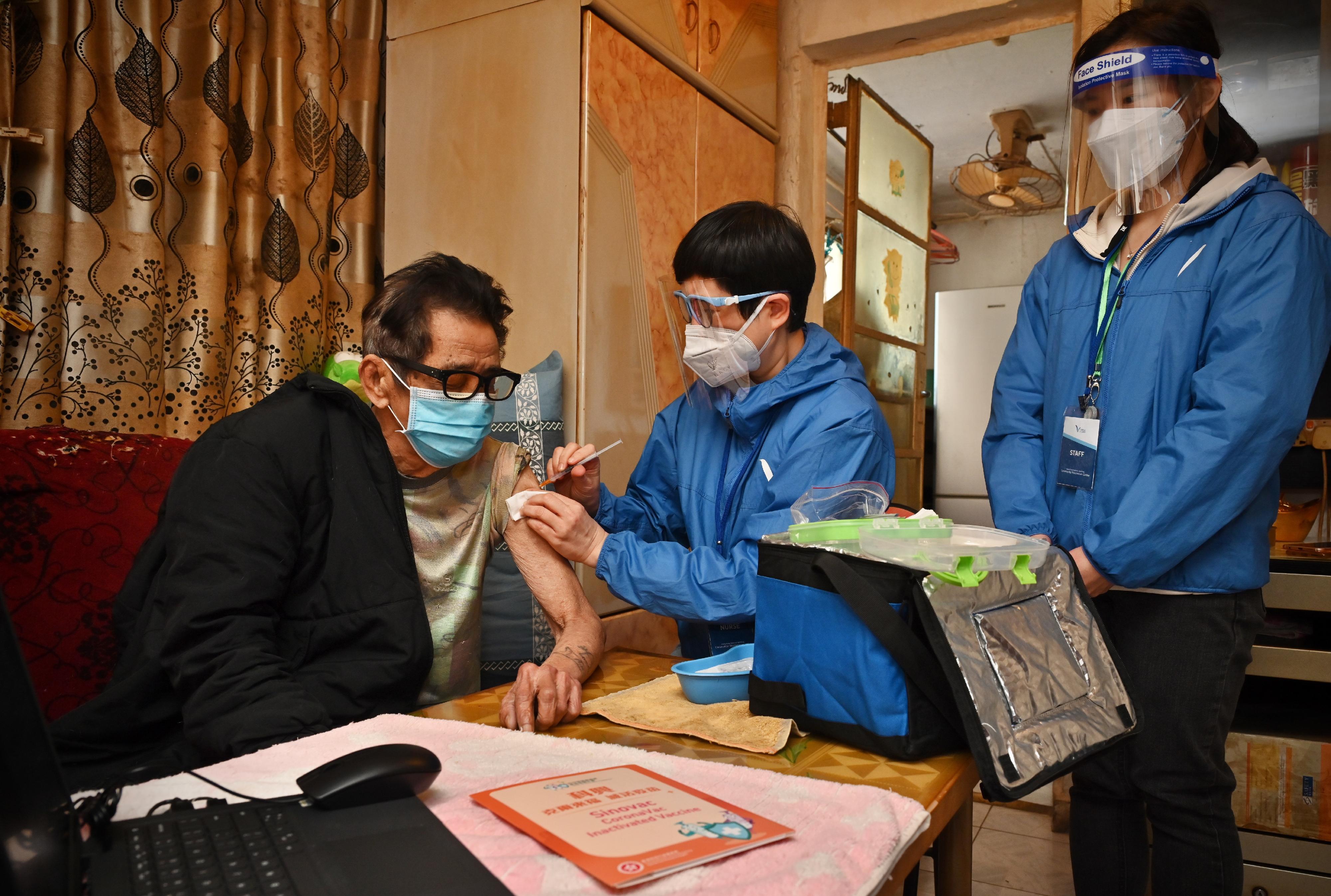United efforts by CSB completes “restriction-testing declaration” operation (with photo)
The Civil Service Bureau (CSB) today (April 3) completed the "restriction-testing declaration" (RTD) operation at Hong Wing House, Cheung Hong Estate in Tsing Yi. As part of the anti-epidemic team, the CSB has been staying at the anti-epidemic front line to promote COVID-19 vaccination and will continue to mobilise civil servants from various bureaux and departments to take part in the fight against the epidemic.
The Secretary for the Civil Service, Mr Patrick Nip, and the Permanent Secretary for the Civil Service, Mrs Ingrid Yeung, together with about 80 staff members from the CSB, participated in the RTD operation at Hong Wing House. The staff members are colleagues from the Administrative Officer Grade, the Executive Officer Grade, the Training Officer Grade, the Official Languages Officer Grade, the Analyst/Programmer Grade, and the Clerical and Secretarial Grades. They put the fight against the epidemic as their priority regardless of their original duties.
Yesterday (April 2), apart from arranging the residents for specimen collection for testing in batches; distributing food packs and rapid antigen test kits, as well as anti-epidemic proprietary Chinese medicines donated by the Central People's Government, etc, to residents subject to compulsory testing; and setting up an information counter of the Home Vaccination Service, the CSB also went door-to-door to collect registration information of unvaccinated elderly persons aged 70 or above and of persons who are unable to leave their homes for vaccination due to illness or physical disability for arranging door-to-door vaccination for them.
Meanwhile, staff from the Bureau who are working under the COVID-19 Vaccination Programme also carried out liaison, preparation, backend support, and arrangement of medical team visit at Hong Wing House, etc, for the Home Vaccination Service, so as to conduct the door-to-door vaccination service trial to persons with special needs and tested negative, upon soft opening of the "restricted area".
Four residents received the Sinovac vaccine today under the Home Vaccination Service. Among them, there are three unvaccinated elderly persons aged 78 to 87, and one household member.
"Following our door-to-door vaccination service trials at Sun Kit House, Sun Chui Estate in Sha Tin on March 31 and Hong Wing House, Cheung Hong Estate in Tsing Yi today, we will conduct trials in other suitable venues and then expand the Home Vaccination Service to persons with special needs in all buildings under RTD operation," Mr Nip said.
He added, "The Hong Kong Special Administrative Region (HKSAR) Government assumes the primary responsibility in anti-epidemic work. As the backbone of the HKSAR Government, the civil service is obligated and assumes an important responsibility in anti-epidemic work. The fight against the epidemic is the current overriding mission. In face of the extremely severe situation of the fifth wave of the epidemic, the whole Government is united and keeps firmly in mind the duty of winning the battle against the epidemic with our utmost effort."
Since the outbreak of the COVID-19 epidemic, the CSB has been proactively participating in anti-epidemic work over the past two years. It co-ordinates the manpower deployment for anti-epidemic work and spares no effort in promoting COVID-19 vaccination. The CSB will continue to mobilise government employees in the frontline anti-epidemic work, including RTD operations, contact tracing, packaging and distribution of anti-epidemic service bags, etc.
